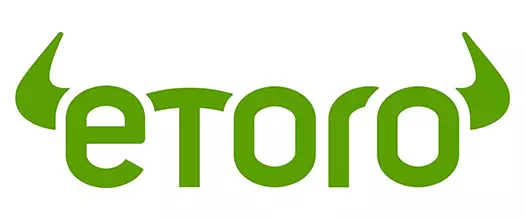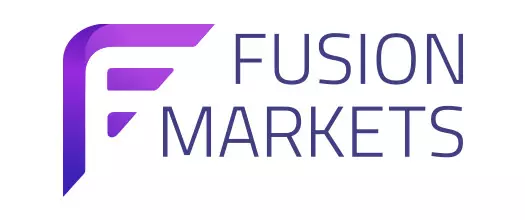Our team of expert traders have tested multiple regulated and trustworthy Ethereum trading brokers and compiled a top list of the best. Each Ethereum broker received a quality score based on several factors, including Trustpilot rating, regulation, fees and commissions, available trading platforms, customer service and more.
 Plus500 USThis content applies only to Plus500 US and clients from the United States. Trading futures involves the risk of loss.
Plus500 USThis content applies only to Plus500 US and clients from the United States. Trading futures involves the risk of loss. eToro61% of retail investor accounts lose money
eToro61% of retail investor accounts lose money Fusion Markets74-89% of retail's CFD accounts lose money
Fusion Markets74-89% of retail's CFD accounts lose money FP Markets73.85% of retail investor accounts lose money
FP Markets73.85% of retail investor accounts lose money Global Prime74-89% of retail CFD accounts lose money
Global Prime74-89% of retail CFD accounts lose money Pepperstone75.5% of retail investor accounts lose money
Pepperstone75.5% of retail investor accounts lose money
Top ten ETH trading brokers
Traders fascinated by Ethereum’s potential will surely be interested in the best ETH brokers, which allow them to trade this digital asset seamlessly. When picking a trading platform, you should consider several fundamental features, including regulation and licences, fees, commissions, spreads and leverage.
To help you make an informed decision, we have compiled a list of top-performing brokerage platforms offering ETH trading. We have also covered other important parameters such as accepted payment methods, reputation, user-friendliness and portfolio diversification.
 TRADE NOWREAD REVIEWPlatformscTrader, DupliTrade, Fusion+ Copy Trading, MetaFX, MetaTrader 4, MetaTrader 5, TradingViewMin Deposit$0FeesNo deposit and withdrawal feesDeposit MethodsCommissionsA $4.50 round-turn commissionSpreadEUR/USD: AVG 0.93 pips, GBP/USD: AVG 1 pips, USDJPY: AVG 1.7 pipsWithdrawal MethodsLeverage EU1:2Leverage non-EU1:500 (ASIC | Pro Account), 1:30 (ASIC | Retail Account), 1:500 (VFSC | Retail Account)InstrumentsCommodity CFDs, Crypto CFDs, Forex CFDs, Index CFDs, Metal CFDs, Stock CFDsCFDs are complex instruments and come with a high risk of losing money rapidly due to leverage. 74-89% of retail investor accounts lose money when trading CFDs with this provider.
TRADE NOWREAD REVIEWPlatformscTrader, DupliTrade, Fusion+ Copy Trading, MetaFX, MetaTrader 4, MetaTrader 5, TradingViewMin Deposit$0FeesNo deposit and withdrawal feesDeposit MethodsCommissionsA $4.50 round-turn commissionSpreadEUR/USD: AVG 0.93 pips, GBP/USD: AVG 1 pips, USDJPY: AVG 1.7 pipsWithdrawal MethodsLeverage EU1:2Leverage non-EU1:500 (ASIC | Pro Account), 1:30 (ASIC | Retail Account), 1:500 (VFSC | Retail Account)InstrumentsCommodity CFDs, Crypto CFDs, Forex CFDs, Index CFDs, Metal CFDs, Stock CFDsCFDs are complex instruments and come with a high risk of losing money rapidly due to leverage. 74-89% of retail investor accounts lose money when trading CFDs with this provider.Launched in 2019, Fusion Markets is an Australia-based financial services platform. The professionals at Fusion Markets adhere to the principles of offering competitive pricing, expert customer support, and cutting-edge order execution.
Fusion Markets holds licenses from the Australian Securities and Investment Commission (ASIC), the Seychelles Financial Services Authority (FSA), and the Vanuatu Financial Services Commission (VFSC). Customers’ funds are safely stored in segregated client trust accounts in accordance with ASIC requirements.
Before opening a live account, customers are encouraged to try a free demo account and practice trading without risking their funds.
With Fusion’s competitively priced cryptocurrency CFDs, clients gain exposure to popular crypto assets, including Bitcoin, Ethereum, and other altcoins.
Fusion+ is Fusion Markets’ copy-trading platform, enabling traders to follow others and replicate their crypto positions. Customers who become Fusion+ money managers can have their trades automatically copied by other Fusion Markets clients.
The broker provides access to several user-friendly trading platforms, including MT4, MT5, DupliTrade, TradingView, and cTrader. The broker offers customer support via telephone, email, and live chat for all types of organizational and technical issues. The operator provides everything necessary to maximize its customers’ investment potential and chances of success.
 TRADE NOWREAD REVIEWRegulatorsCySEC (Cyprus, # 109/10), FCA (United Kingdom, # 583263), FRSA (United Arab Emirates, # 220073), FinCEN (United States, # 31000204884179), FINRA (United States, # 298361), FSAS (Seychelles, # SD076), GFSC (Gibraltar, # 1333B), AMF (France, # E2022-038), MFSA (Malta, # C97952), SEC (United States, # 0001753042), ASIC (Australia, # 491139)PlatformseToro App, eToro CopyTrader, eToro Investing2. eToroMin Deposit$50 or $100 based on country ($10 for the UK)Fees
TRADE NOWREAD REVIEWRegulatorsCySEC (Cyprus, # 109/10), FCA (United Kingdom, # 583263), FRSA (United Arab Emirates, # 220073), FinCEN (United States, # 31000204884179), FINRA (United States, # 298361), FSAS (Seychelles, # SD076), GFSC (Gibraltar, # 1333B), AMF (France, # E2022-038), MFSA (Malta, # C97952), SEC (United States, # 0001753042), ASIC (Australia, # 491139)PlatformseToro App, eToro CopyTrader, eToro Investing2. eToroMin Deposit$50 or $100 based on country ($10 for the UK)Fees- Conversion fee to non-USD deposits and withdrawals;
- A $5 fee on withdrawals;
- A $10 monthly fee after 12 months of inactivity;
- A $2 fee for transferring cryptocurrencies to the eToro Money wallet
Deposit MethodsCommissionsA 1% fee for buying and selling cryptocurrenciesSpreadEUR/USD: AVG 1 pips, GBP/USD: AVG 2 pips, USDJPY: AVG 1 pipsWithdrawal MethodsLeverage EU1:400 (CySEC | Pro Account), 1:30 (CySEC | Retail Account)Leverage non-EU1:400 (FSAS | Retail Account)InstrumentsCommodity CFDs, Crypto CFDs, ETF CFDs, Forex CFDs, Index CFDs, Metal CFDs, Share CFDs, Stock CFDs, US Stock CFDsCryptocurrency is offered by eToro USA LLC (“the MSB”) (NMLS:1769299) and is not FDIC or SIPC insured. Investing involves risk.Don’t invest unless you’re prepared to lose all the money you invest. This is a high-risk investment and you should not expect to be protected if something goes wrong. Take 2 mins to learn moreAs one of the leading brokers for Ethereum trading, eToro delivers a straightforward and low-cost trading experience for novice and seasoned traders alike.
The broker enables inexperienced customers to trade via an intuitive proprietary platform and to engage in copy trading, allowing new clients to mimic the positions of top-performing traders and replicate their success. Customers can filter signal providers by their profits over the last 12 months and by average risk score.
The minimum deposit traders must make depends on their country of residence. Minimum deposits start at $1 in the United States and at $50 in most other countries. With regard to the supported deposit methods, the broker accepts card payments, bank wires, and digital wallets.
In addition to Ethereum, those interested in cryptocurrency trading can diversify their portfolios by trading other digital assets such as Bitcoin, Bitcoin Cash, Litecoin, and Ripple, among others. The broker facilitates spot cryptocurrency trading and allows users to store their assets in its proprietary eToro Money wallet. Active traders can also benefit from another useful feature – ETH News – which delivers the latest information on the second-most-popular crypto asset.
As a platform operating under the supervision of financial regulators such as the FCA, CySEC, and ASIC, eToro offers negative balance protection and investor compensation to its customers.
 TRADE NOWREAD REVIEWRegulatorsCONSOB (Italy, # 211), FCA (United Kingdom, # 434413), SCB (Bahamas, # 199667 B), CMVM (Portugal, # 433), FSCM (Mauritius, # GB24203277), CVM (Brazil, # 43050.917/0001-03)PlatformsMetaTrader 4, MetaTrader 5, Proprietary Web, TradingView3. ActivTradesMin Deposit$0Fees
TRADE NOWREAD REVIEWRegulatorsCONSOB (Italy, # 211), FCA (United Kingdom, # 434413), SCB (Bahamas, # 199667 B), CMVM (Portugal, # 433), FSCM (Mauritius, # GB24203277), CVM (Brazil, # 43050.917/0001-03)PlatformsMetaTrader 4, MetaTrader 5, Proprietary Web, TradingView3. ActivTradesMin Deposit$0Fees- 0.5% on deposits (EU/EEA cards)
- 1.5% on deposits (non EU/EEA cards)
- $12.50 for bank transfer withdrawals in USD
- £9 for bank transfers in GBP (SCB and FSC entities only)
- A $10 inactivity fee after 50 weeks
Deposit MethodsCommissionsNone on crypto CFDsSpreadEUR/USD: AVG 0.5 pips, GBP/USD: AVG 0.8 pips, USDJPY: AVG 0.5 pipsWithdrawal MethodsLeverage EU1:2 (1:20 for Pro accounts)Leverage non-EU1:400 (CMVM | Pro Account), 1:30 (CMVM | Retail Account), 1:1000 (FSC), 1:200 (SCB)InstrumentsBonds CFDs, Commodity CFDs, Crypto CFDs, ETF CFDs, Forex CFDs, Index CFDs, Share CFDsCFDs are complex instruments and come with a high risk of losing money rapidly due to leverage. 73% of retail investor accounts lose money when trading CFDs with this provider.You should consider whether you understand how CFDs work and whether you can afford to take the high risk of losing your money.ActivTrades offers multiple benefits to cryptocurrency traders, including zero commissions on crypto CFDs, tight spreads, and lightning-fast order execution with an average speed of 0.004 seconds. Regulated in the Bahamas and Mauritius, the broker provides competitive pricing for Ethereum and 14 other cryptocurrencies, including Bitcoin, Solana, Cardano, Avalanche, and Ripple. All trading is conducted through contracts for difference, eliminating the need to set up and maintain a dedicated crypto wallet.
The broker appeals to both high-volume and small-scale traders, enabling them to increase their crypto-market exposure with a maximum leverage of 1:20 offered by its two offshore entities. Clients who onboard through the version of the website regulated in Portugal can access leverage of up to 1:2. ActivTrades advertises average spreads of 4 points for ETH/USD and charges no commissions when opening or closing positions.
Customers can speculate on digital-asset prices via the broker’s proprietary ActivTrader platform, MetaTrader 5, or MetaTrader 4. Linking an ActivTrader account to TradingView is another option for clients who want to leverage the third-party platform’s advanced charting capabilities. The minimum position you can open in ETH/USD is 0.01 lots, while the maximum trade size goes up to 10 lots.
 TRADE NOWREAD REVIEWRegulatorsCIRO (Canada), CySEC (Cyprus, # 347/17), FRSA (United Arab Emirates, # 190018), FFAJ (Japan, # 1574), FSCA (South Africa, # 45984), FSRA (Canada, # 190018), ISA (Israel, # 514666577), JFSA (Japan, # 1662), ASIC (Australia, # 406684), BVIFSC (Virgin Islands, British, # SIBA/L/13/1049), CBI (Ireland, # C53877)PlatformsAvaOptions, DupliTrade, AvaSocial, MetaTrader 4, MetaTrader 5, AvaTadeGO, Proprietary Web, ZuluTrade4. AvaTradeMin Deposit$100FeesNo deposit and withdrawal feesDeposit MethodsCommissionsNoneSpreadEUR/USD: AVG 0.8 pips, GBP/USD: AVG 1.2 pips, USDJPY: AVG 1.3 pipsWithdrawal MethodsLeverage EU1:2 (1:25 for professional traders)Leverage non-EU1:400 (Pro Account), 1:30 (Standard Account)InstrumentsBonds CFDs, Commodity CFDs, Crypto CFDs, Crypto Options, Energy CFDs, ETF CFDs, Forex CFDs, Forex Options, Index CFDs, Index Options, Metal CFDs, Share CFDs, Stock CFDs, Stock Options, US Stock OptionsCFDs are complex instruments and come with a high risk of losing money rapidly due to leverage. 71% of retail investor accounts lose money when trading CFDs with this provider. You should consider whether you understand how CFDs work and whether you can afford to take the high risk of losing your money.
TRADE NOWREAD REVIEWRegulatorsCIRO (Canada), CySEC (Cyprus, # 347/17), FRSA (United Arab Emirates, # 190018), FFAJ (Japan, # 1574), FSCA (South Africa, # 45984), FSRA (Canada, # 190018), ISA (Israel, # 514666577), JFSA (Japan, # 1662), ASIC (Australia, # 406684), BVIFSC (Virgin Islands, British, # SIBA/L/13/1049), CBI (Ireland, # C53877)PlatformsAvaOptions, DupliTrade, AvaSocial, MetaTrader 4, MetaTrader 5, AvaTadeGO, Proprietary Web, ZuluTrade4. AvaTradeMin Deposit$100FeesNo deposit and withdrawal feesDeposit MethodsCommissionsNoneSpreadEUR/USD: AVG 0.8 pips, GBP/USD: AVG 1.2 pips, USDJPY: AVG 1.3 pipsWithdrawal MethodsLeverage EU1:2 (1:25 for professional traders)Leverage non-EU1:400 (Pro Account), 1:30 (Standard Account)InstrumentsBonds CFDs, Commodity CFDs, Crypto CFDs, Crypto Options, Energy CFDs, ETF CFDs, Forex CFDs, Forex Options, Index CFDs, Index Options, Metal CFDs, Share CFDs, Stock CFDs, Stock Options, US Stock OptionsCFDs are complex instruments and come with a high risk of losing money rapidly due to leverage. 71% of retail investor accounts lose money when trading CFDs with this provider. You should consider whether you understand how CFDs work and whether you can afford to take the high risk of losing your money.As a heavily regulated and trustworthy trading platform, AvaTrade holds licenses from several well-known financial authorities, including CySEC, ASIC, FSCA, and ADGM, among others.
Ethereum is one of AvaTrade’s most-traded digital assets. Open to traders 24/7, the platform offers typical spreads of 0.15% over the market price for ETH/USD, with maximum leverage of 1:2 for EU-based clients and up to 1:25 for those in other regions.
Ethereum can be traded on AvaTrade’s platform via CFDs, which offer numerous advantages such as commission-free trading. The option of leveraged trading is another benefit frequently used by experienced traders, enabling them to open positions larger than their account balances would otherwise allow.
Furthermore, trading ETH with AvaTrade does not require a crypto wallet, as only crypto CFDs are currently available. AvaTrade’s customers can trade cryptocurrencies against fiat currencies such as the U.S. dollar and the euro.
Trading Ethereum on AvaTrade can be accomplished in three easy steps – opening a trading account, verifying it, and depositing funds via cards or wire transfers.
With a demo account, users can familiarize themselves with the platform and trade in practice mode without risking real funds. The broker covers all deposit and withdrawal fees, thereby keeping non-trading expenses to a minimum.
 TRADE NOWREAD REVIEWRegulatorsPlatformsMetaTrader 4, MetaTrader 5, Proprietary Mobile, Proprietary Web5. PepperstoneMin Deposit$0Fees
TRADE NOWREAD REVIEWRegulatorsPlatformsMetaTrader 4, MetaTrader 5, Proprietary Mobile, Proprietary Web5. PepperstoneMin Deposit$0Fees- No deposit and withdrawal fees;
- No account maintenance and inactivity fees
Deposit MethodsCommissionsNone for standard accountsSpreadEUR/USD: AVG 1.1 pips, GBP/USD: AVG 1.3 pips, USDJPY: AVG 1.3 pipsWithdrawal MethodsLeverage EU1:500 (CySEC | Pro Account), 1:30 (CySEC | Retail Account), 1:30 (FCA | Retail Account)Leverage non-EU1:500 (SCB | Pro Account), 1:30 (ASIC | Retail Account), 1:30 (DFSA | Retail Account), 1:200 (SCB | Retail Account)InstrumentsCommodity CFDs, Crypto CFDs, Energy CFDs, Forex CFDs, Index CFDs, Metal CFDs, Stock CFDsSpread bets and CFDs are complex instruments and come with a high risk of losing money rapidly due to leverage. 74.7% of retail investor accounts lose money when trading spread bets and CFDs with this provider. You should consider whether you understand how spread bets and CFDs work and whether you can afford to take the high risk of losing your money.Since its launch in 2010, Pepperstone has emerged as one of the top CFD providers in the industry. The broker offers an extensive selection of tradable markets, including shares, forex, indices, commodities, and cryptocurrencies, among other financial products.
As a global forex and CFD broker, Pepperstone holds licenses from renowned regulatory bodies such as the FCA, ASIC, and CySEC. Low spreads, strong regulation, and a range of platform options (cTrader, TradingView, MT4, MT5, Pepperstone WebTrader) combine to ensure a seamless trading experience for both beginner and seasoned traders.
The broker has waived its minimum deposit requirement but recommends a starting balance of at least $500 for new customers. Traders interested in cryptocurrency will find that Pepperstone provides an excellent environment for digital asset trading.
Pepperstone does not yet offer a crypto wallet, as only crypto CFDs are currently available. The minimum spread for Ethereum is 3 pips, with an average spread of about 3.03 pips. The leverage ratio is 1:2 for retail clients and 1:20 for professional accounts.
The Autochartist tool enables customers to analyze and monitor the crypto markets more effectively for potentially lucrative trading opportunities. Additionally, account holders who deposit more than $500 gain access to MetaTrader’s suite of Smart Trader tools.
 TRADE NOWREAD REVIEWRegulatorsCySEC (Cyprus, # 371/18), FSAS (Seychelles, # SD130), FSCA (South Africa, # 50926), SCB (Bahamas), ASIC (Australia, # 286354), FSCM (Mauritius, # GB21026264)PlatformscTrader, IRESS, MetaTrader 4, MetaTrader 5, TradingView6. FP MarketsMin Deposit$50 (AU$100)FeesNo deposit and withdrawal feesDeposit MethodsCommissionsNone for crypto CFDsSpreadEUR/USD: AVG 1.2 pips, GBP/USD: AVG 1.4 pips, USDJPY: AVG 1.5 pipsWithdrawal MethodsLeverage EU1:500 (CySEC | Pro Account), 1:30 (CySEC | Retail Account)Leverage non-EU1:30 (ASIC | Retail Account), 1:500 (FSAS | Retail Account)InstrumentsCommodity CFDs, Crypto CFDs, Energy CFDs, Forex CFDs, Index CFDs, Metal CFDs, Stock CFDsTrade Responsibly: Derivative products are highly leveraged, carry a high level of risk, and are not suitable for all investors.
TRADE NOWREAD REVIEWRegulatorsCySEC (Cyprus, # 371/18), FSAS (Seychelles, # SD130), FSCA (South Africa, # 50926), SCB (Bahamas), ASIC (Australia, # 286354), FSCM (Mauritius, # GB21026264)PlatformscTrader, IRESS, MetaTrader 4, MetaTrader 5, TradingView6. FP MarketsMin Deposit$50 (AU$100)FeesNo deposit and withdrawal feesDeposit MethodsCommissionsNone for crypto CFDsSpreadEUR/USD: AVG 1.2 pips, GBP/USD: AVG 1.4 pips, USDJPY: AVG 1.5 pipsWithdrawal MethodsLeverage EU1:500 (CySEC | Pro Account), 1:30 (CySEC | Retail Account)Leverage non-EU1:30 (ASIC | Retail Account), 1:500 (FSAS | Retail Account)InstrumentsCommodity CFDs, Crypto CFDs, Energy CFDs, Forex CFDs, Index CFDs, Metal CFDs, Stock CFDsTrade Responsibly: Derivative products are highly leveraged, carry a high level of risk, and are not suitable for all investors.Founded in 2005 and headquartered in Australia, FP Markets operates in compliance with the strict guidelines of ASIC, CySEC, and other regulators. The online broker offers more than 10,000 tradable CFD products, including Forex, metals, indices, commodities, and cryptocurrencies. The operator guarantees low latency and deep liquidity.
FP Markets is among the most popular trading platforms, offering excellent conditions for cryptocurrency CFD trading. In addition to Ethereum and Bitcoin, traders can choose from 10 other popular cryptocurrencies, including Ripple, Bitcoin Cash, and Litecoin.
Customers can diversify their portfolios by trading Ethereum CFDs with average spreads of 4.72 pips and leverage of up to 1:2 in the EU and Australia. There is no need to set up a crypto wallet.
FP Markets provides a favorable environment for social trading. Many educational and informative resources are readily available to the company’s customers. The Traders Toolbox is a convenient feature of FP Markets, offering novice and experienced traders a suite of 12 advanced trading tools for the MT4 and MT5 platforms. This range of instruments ensures that clients of the brand can implement sound risk management during their trading sessions. TradingView and cTrader are supported as well.
The trading platform does not charge any additional fees for deposits, withdrawals, or inactive accounts. Minimum deposits start at $50 (AU$100) for both Standard and Raw accounts. The list of accepted payment methods includes card payments, bank transfers, and a wide range of digital wallets, including PayPal, Skrill, and Neteller.
- 7. AdmiralsMin Deposit$100 ($1 for Invest MT5 accounts)Fees
- No deposit and withdrawal fees
- Monthly inactivity fee of $10 after 12 months of no logging in
- 0.3% currency conversion fee
CommissionsNone for cryptocurrency CFDsSpread0.3% for ETH/USDLeverage EU1:2 (1:20 for professional traders)Leverage non-EU1:2 (1:20 for professional traders)CFDs are complex instruments and come with a high risk of losing money rapidly due to leverage. 81% of retail investor accounts lose money when trading CFDs with this provider. You should consider whether you understand how CFDs work and whether you can afford to take the high risk of losing your money.Admirals, formerly known as Admiral Markets, is another outstanding trading company that enables its customers to invest and trade in more than 8,000 financial instruments, including forex, indices, commodities, stocks, bonds, and crypto CFDs. The rebranding took place in March 2021 as a result of the expansion of its product offering.
Since its inception in 2001, Admirals has continually developed and upgraded its services in numerous locations, becoming a true global leader in online trading services. The brand boasts more than 65,000 clients across over 150 countries.
The company is strictly regulated by 11 prominent financial watchdogs, including authorities in the UK, Estonia, Cyprus, and Australia. Regarding Ethereum trading, customers can use leverage of up to 1:2 for retail accounts (1:20 for professional traders) and benefit from competitive spreads starting at 0.3%.
Providing customers with the opportunity to make informed decisions is among Admirals’ main priorities. The broker offers plenty of educational materials, including webinars and tools for fundamental analysis. The extensive range of educational resources available at Admirals is constantly growing. All research and market analysis tools are neatly arranged, enabling traders to navigate the website quickly and in a hassle-free manner.
The minimum required deposit is only $100, and accounts can be funded via a range of convenient payment methods.
Traders can choose from five account types, including free demo accounts for the MetaTrader 4 and MetaTrader 5 platforms. Admirals also offers a proprietary mobile application that is just as user-friendly, clutter-free, and secure as the desktop software.
 TRADE NOWREAD REVIEWRegulatorsCySEC (Cyprus, # 319/17), FCA (United Kingdom, # 793714), SCB (Bahamas, # SIA-F245), ASIC (Australia, # 513393), ESCA (United Arab Emirates, # 20200000176)PlatformsMetaTrader 4, Proprietary Mobile, Proprietary Web, TradingView8. Capital.comMin Deposit$20FeesNo deposit and withdrawal feesDeposit MethodsCommissionsNone for cryptocurrency tradingSpreadEUR/USD: AVG 0.6 pips, GBP/USD: AVG 1.3 pips, USDJPY: AVG 1 pipsWithdrawal MethodsLeverage EU1:30 (CySEC | Retail Account), 1:30 (FCA | Retail Account), 1:300 (CySEC | Pro Account), 1:300 (FCA | Pro Account)Leverage non-EU1:30 (ASIC | Retail Account), 1:200 (SCB | Retail Account)InstrumentsCommodity CFDs, Commodity Futures, Crypto CFDs, Crypto futures, Currency Futures, Forex CFDs, Index CFDs, Index Futures, Options, Share CFDsCFDs are complex instruments and come with a high risk of losing money rapidly due to leverage. 83.45% of retail investor accounts lose money when trading CFDs with this provider. You should consider whether you understand how CFDs work and whether you can afford to take the high risk of losing your money.
TRADE NOWREAD REVIEWRegulatorsCySEC (Cyprus, # 319/17), FCA (United Kingdom, # 793714), SCB (Bahamas, # SIA-F245), ASIC (Australia, # 513393), ESCA (United Arab Emirates, # 20200000176)PlatformsMetaTrader 4, Proprietary Mobile, Proprietary Web, TradingView8. Capital.comMin Deposit$20FeesNo deposit and withdrawal feesDeposit MethodsCommissionsNone for cryptocurrency tradingSpreadEUR/USD: AVG 0.6 pips, GBP/USD: AVG 1.3 pips, USDJPY: AVG 1 pipsWithdrawal MethodsLeverage EU1:30 (CySEC | Retail Account), 1:30 (FCA | Retail Account), 1:300 (CySEC | Pro Account), 1:300 (FCA | Pro Account)Leverage non-EU1:30 (ASIC | Retail Account), 1:200 (SCB | Retail Account)InstrumentsCommodity CFDs, Commodity Futures, Crypto CFDs, Crypto futures, Currency Futures, Forex CFDs, Index CFDs, Index Futures, Options, Share CFDsCFDs are complex instruments and come with a high risk of losing money rapidly due to leverage. 83.45% of retail investor accounts lose money when trading CFDs with this provider. You should consider whether you understand how CFDs work and whether you can afford to take the high risk of losing your money.Capital.com is a renowned broker preferred by more than 660,000 traders worldwide thanks to its excellent customer support, commission-free trading opportunities, and user-friendly interface. The broker serves clients in most countries and operates under licenses issued by regulators in the UK, Cyprus, Australia, and other jurisdictions.
Its safe and transparent trading conditions are the primary reason Capital.com is a popular choice for crypto and Ethereum trading. Traders avoid the hassle of managing private keys and wallet addresses because Capital.com enables them to trade CFDs that track Ether’s price movements without purchasing the underlying coins. In addition to major cryptocurrencies such as Bitcoin and Ethereum, Capital.com offers more than 100 altcoins.
Capital.com earns solely from spreads and charges no commissions on cryptocurrency trades. When traders open a position, they need only cover the difference between the bid and ask prices. At the time of publication, spreads for Ethereum are approximately 1.75 pips.
In addition to its proprietary web-based platform, the broker supports trading through third-party software such as TradingView and MT4. Capital.com is suitable for traders of all experience levels, requiring a minimum starting balance of only $20. However, deposits made via wire transfer must be at least $50.
- 9. IC MarketsMin Deposit$200Fees
- No deposit and withdrawal fees;
- No account inactivity fees
Deposit MethodsCommissionsNone for cryptocurrency tradesSpreadEUR/USD: AVG 0.82 pips, GBP/USD: AVG 1.03 pips, USDJPY: AVG 0.94 pipsWithdrawal MethodsLeverage EU1:500 (CySEC | Pro Account), 1:30 (CySEC | Retail Account)Leverage non-EU1:1000 (FSAS | Retail Account)InstrumentsCommodity CFDs, Crypto CFDs, Energy CFDs, Forex CFDs, Index CFDs, Metal CFDs, Stock CFDsCFDs are complex instruments and come with a high risk of losing money rapidly due to leverage. 75.93% of retail investor accounts lose money when trading CFDs with this provider. You should consider whether you understand how CFDs work and whether you can afford to take the high risk of losing your money.IC Markets is yet another high-performance broker ideally suited for trading cryptocurrencies through CFDs, including Ethereum. Since its launch in 2007 in Sydney, Australia, the operator has demonstrated an unwavering commitment to delivering reliable and competitively priced trading services to its customers. Licensed by ASIC, CySEC, and the FSA (Seychelles), IC Markets offers fast execution times, competitive spreads across more than 2,200 tradable markets, and expert customer support.
Cryptocurrencies can be traded via the MT4 and MT5 platforms, but cTrader is also available at IC Markets. Clients incur no commissions for crypto trading. Spreads for Ethereum start at 2.31 pips and average around 2.97 pips, but keep in mind these values are subject to change over time. Apart from Ethereum, IC Markets facilitates trading in about 20 other tokens and altcoins, including Kusama, Polygon, Dogecoin, Tezos, and Chainlink. All of these are tradable through CFDs and require no ownership of the underlying assets.
Educational materials are available for free. Customers can choose from a number of funding options, including credit and debit cards, digital wallets, wire transfers, and online banking, among others. Client funds are safely stored in segregated trust accounts, and transactions are protected with SSL encryption. No additional fees are charged for deposits and withdrawals. There are no inactivity fees for dormant accounts, either.
 TRADE NOWREAD REVIEWPlatformscTrader, MetaTrader 4, MetaTrader 5, TradingView, Blueberry X, WebTraderMin Deposit$100FeesNo deposit and withdrawal feesDeposit MethodsCommissionsNone for cryptocurrency tradesSpreadEUR/USD: AVG 1.1 pips, GBP/USD: AVG 1 pips, USDJPY: AVG 1.5 pipsWithdrawal MethodsLeverage EU1:2Leverage non-EU1:30 (ASIC | Retail Account), 1:500 (FSCM), 1:500 (VFSC)InstrumentsCommodity CFDs, Crypto CFDs, Forex CFDs, Index CFDs, Share CFDsMargin trading involves a high level of risk and is not suitable for all investors. You should carefully consider your objectives, financial situation, needs, and level of experience before entering into any margined transactions with Blueberry Markets, and seek independent advice if necessary. Forex and CFDs are highly leveraged products, which means both gains and losses are magnified. You should only trade in these products if you fully understand the risks involved and can afford to incur losses that will not adversely affect your lifestyle.
TRADE NOWREAD REVIEWPlatformscTrader, MetaTrader 4, MetaTrader 5, TradingView, Blueberry X, WebTraderMin Deposit$100FeesNo deposit and withdrawal feesDeposit MethodsCommissionsNone for cryptocurrency tradesSpreadEUR/USD: AVG 1.1 pips, GBP/USD: AVG 1 pips, USDJPY: AVG 1.5 pipsWithdrawal MethodsLeverage EU1:2Leverage non-EU1:30 (ASIC | Retail Account), 1:500 (FSCM), 1:500 (VFSC)InstrumentsCommodity CFDs, Crypto CFDs, Forex CFDs, Index CFDs, Share CFDsMargin trading involves a high level of risk and is not suitable for all investors. You should carefully consider your objectives, financial situation, needs, and level of experience before entering into any margined transactions with Blueberry Markets, and seek independent advice if necessary. Forex and CFDs are highly leveraged products, which means both gains and losses are magnified. You should only trade in these products if you fully understand the risks involved and can afford to incur losses that will not adversely affect your lifestyle.Blueberry Markets, launched in Australia in 2016, has grown into a leading broker not only in the country but also worldwide. The brokerage platform offers access to more than 300 tradable instruments, including forex, share CFDs, commodities, and cryptocurrencies.
Blueberry Markets is a strictly regulated trading platform, holding licenses in several jurisdictions, including Cyprus, Australia, and the Bahamas. Clients’ funds are protected regardless of where they trade from.
Blueberry Markets enables traders to speculate on cryptocurrency price movements with competitive spreads starting at just 0.5 pips for highly liquid digital assets such as Bitcoin and Ethereum. Trading cryptocurrencies is exceptionally easy and hassle-free thanks to the broker’s user-friendly platforms.
Minimum deposits start at $100. The range of payment solutions includes cards, bank transfers, and e-wallets. No commissions are charged on cryptocurrency trades. The brand’s educational resources are exceptionally comprehensive and are structured into three categories – beginner, intermediate, and advanced.
Traders do not need a crypto wallet for asset storage because the broker currently offers only CFDs. Trading is available via the widely recognized third-party platforms MetaTrader 4 and MetaTrader 5.
Over the last decade, an ever-increasing number of people have started toying with the idea of capitalising on digital currencies. Ethereum, the world’s second-largest cryptocurrency by market share after Bitcoin, reached an all-time peak of $4,891.70 on 16 November 2021, a record it has not managed to break since.
Before Bitcoin was launched, the only way to process money digitally was through an intermediary. The blockchain is a system that can be used to build applications and programmes and to process decentralised payments, eliminating the need for third-party intermediaries such as banks. While Bitcoin was the foundation from which Ethereum emerged, the two cryptocurrencies were created for different purposes. The former was intended as a store of value, while the latter was launched primarily to interact with applications on the ETH blockchain.
Ethereum was initially proposed in 2013 and then introduced to the world in 2014 by Vitalik Buterin, a programming genius of Russian-Canadian origin. The platform was officially launched in July 2015. Much like Bitcoin, Ethereum is a global platform backed by ground-breaking decentralised blockchain technology. Ethereum’s native cryptocurrency is Ether, or ETH.
A cornerstone in Ethereum’s history was the split of Ethereum (ETH) and Ethereum Classic (ETC), which is also known as a hard fork. The original Ethereum blockchain is Ethereum Classic (ETC), and Ethereum (ETH) originated from this hard fork. While ETC’s supply is fixed, ETH has gained wider popularity and has no fixed supply.
Plenty of the world’s latest technological advancements have resulted from the launch of Ethereum. As a blockchain network, Ethereum facilitates the development of smart contracts that can be utilised to create decentralised applications (DApps). To build one such app, developers should learn Ethereum’s coding language, called Solidity.
The platform runs smart contracts without delays, deception or third-party interference. Smart contracts cannot be edited once deployed on the Ethereum network.
The current article focuses on Ethereum trading, the wealth of opportunities it offers and the best brokers that facilitate trading with this cryptocurrency. If novice traders struggle to wrap their heads around Ethereum, they are welcome to read more about it.
How ETH trading works for traders and brokers
As we have already established, Ethereum is a decentralised network, making use of smart contracts and allowing programmes to run without the possibility of deceit or third-party interference.
When Ethereum first appeared on the crypto scene, it used the Proof of Work consensus mechanism, which involved mining Ethereum blocks to validate transactions on the blockchain. Miners were rewarded for their efforts with specific amounts of Ether coins.
The creators of the Ethereum network foresaw its rapid growth in popularity and, as a result, the network moved to the Proof of Stake consensus mechanism in September 2022, where transactions on the blockchain are confirmed by validators instead of miners through a process called staking. There are multiple benefits to switching to this mechanism, including reduced energy consumption and enhanced network security.
Starting at around $2.77 in 2015, Ether’s price has fluctuated over the years, reaching an all-time high of $4,891 in November 2021. Considering its price swings and its great potential, Ethereum is a thrilling cryptocurrency for speculators and investors alike. Ethereum’s immense volatility enables savvy traders to capitalise on short-term price changes.
We will now consider Ethereum trading first from the traders’ point of view and then from the brokers’ perspective.
How ETH trading works for traders
First of all, traders should make a clear distinction between a broker and an exchange. One difference results from the fact that exchanges facilitate peer-to-peer transactions, which essentially means their customers trade Ether with one another. The exchange is merely a mediator between Ether sellers and buyers. Exchanges are better suited to the needs of long-term investors, allowing them to buy, hold and stake actual Ether coins.
Depending on their pricing model, brokers sometimes trade against their clients, and most enable customers only to speculate on short-term price movements of cryptocurrencies through contracts for difference (CFDs). Here you trade Ethereum against fiat currencies such as the US dollar or against other digital assets like Bitcoin without purchasing and holding actual Ether coins.
We will now outline some of the basic notions that Ethereum traders should be aware of.
Crypto CFDs enable traders to speculate both on rising and falling prices. They do not involve investing directly in the underlying product (Ethereum in this case). CFDs do not entail actual ownership of the digital assets. Instead, the clients of CFD brokers trade on price fluctuations in real time.
To trade Ethereum online, traders have two options. The first is to speculate on price fluctuations via cryptocurrency CFDs, and the second is to buy Ether on the spot, but very few brokers actually offer this option.
Because cryptocurrency CFDs typically involve using leverage, traders can gain greater market exposure by opening larger positions with borrowed capital. A word of caution, though: while using leverage can considerably increase your potential profits, it carries significant risk as it can also magnify your losses. Trading ETH through CFDs with a broker does not require setting up a crypto wallet.
As far as trading styles are concerned, you can apply several different strategies. The first is day trading, where you enter and exit positions within the same day. The second is swing trading, which involves trades conducted in the short- to medium-term ranges. The third trading style goes by the name of trend trading and entails trading assets for longer periods.
Some Ethereum brokers offer a service called copy trading, allowing customers to mimic the positions of experienced traders and potentially replicate their successful Ethereum trades. The traders you copy are called ‘signal providers’ and normally charge small commissions known as ‘performance fees’ for successful trades.
How ETH trading works for brokers
While some platforms facilitate buying actual cryptocurrencies on the spot at current market prices, most brokers enable customers to profit solely from Ethereum’s price fluctuations through contracts for difference, as we already explained above. This speculative instrument enables clients to open and close positions swiftly and use leverage to inflate their position size with borrowed capital. CFD traders do not own any Ether coins but can open long or short positions to profit from increasing and decreasing prices. We explain how CFD brokers generate profits in the paragraphs below.
Most brokers usually profit from fees and commissions, but there are different pricing models. Some brokers charge no commissions but widen their spreads to compensate for this. Others charge volume-based commissions but offer considerably lower spreads. With this in mind, most brokers do not impose commissions on cryptocurrency CFDs.
The spread is the difference between the bid and ask price of a financial asset. Usually, the bid price is lower than the ask price. Spreads can be narrower or wider, depending on market conditions and volatility levels.
Although most cryptocurrency CFD brokers charge no commissions, additional expenses often result from overnight charges (swaps) and inactivity fees. Overnight fees are charged for maintaining open positions for more than a single day. As their name suggests, inactivity fees are charged when a trading account remains inactive for a specific period (most commonly 6 to 12 months).











